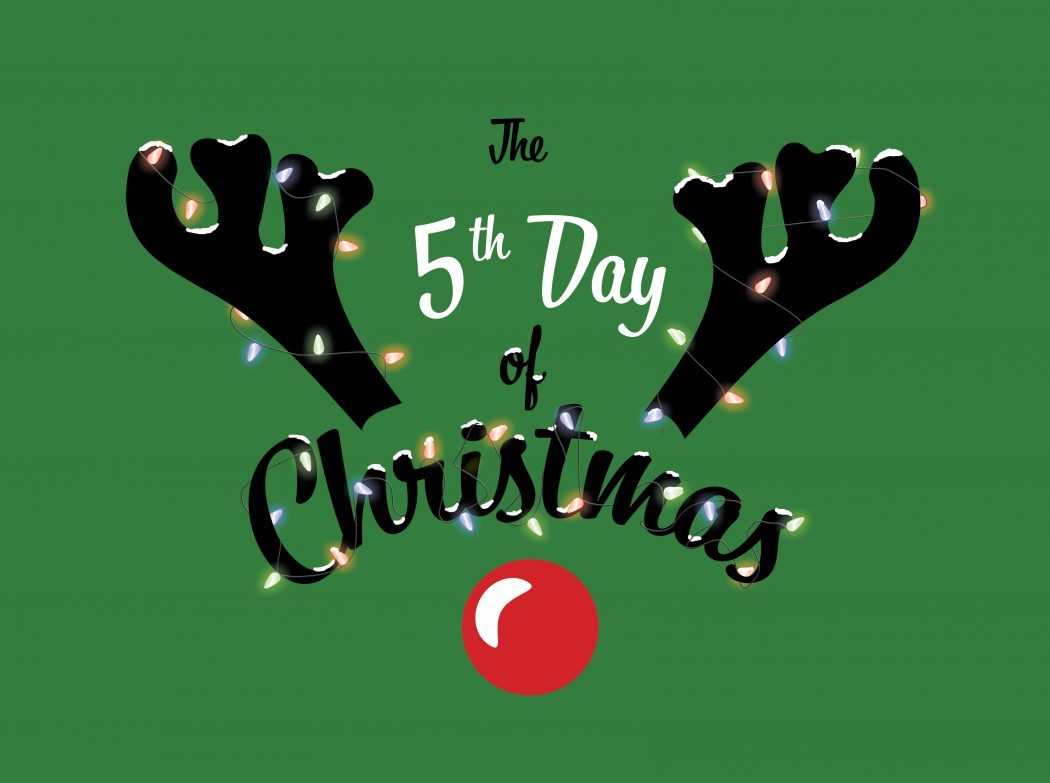12 Days of Christmas: Archaic holiday lyrics
Now you can truly troll the ancient Yuletide carol
The traditions we honor today during the Christmas season are a blend of two extremely different religions and hundreds of cultures. Christmas has endured countless variations, only becoming familiar as recently as the late 1800s when it became a federal holiday in the United States.
The language of ancient carols and modern songs we sing today reflect the evolution of the Christmas season.
For example, there are many words and phrases within the 1940-1960 Christmas song craze
that are becoming stranger with time.
In “It’s Beginning to Look a Lot Like Christmas,” Meredith Wilson describes a glistening “five and ten” with “silver lanes aglow.” A five and ten — or five and dime — was a type of store where everything was 5 or 10 cents, a sort of 1950s dollar store. There is more speculation, however, about what “silver lanes” are. Some say Wilson is describing the white aisles of the five and ten, while others say he means literal lanes reflecting ice and snow.
A common element to many Christmas songs — old and new — is mistletoe. Often mistaken for its prettier counterpart, holly, mistletoe is a parasitic plant that attaches itself to a host and sucks nutrients from it. But mistletoe’s life cycle is not the inspiration for the kissing tradition. That traces back to Nordic mythology when Baldur, the son of Odin, was resurrected after being killed by an arrow made out of mistletoe. Frigg, Baldur’s mother, promptly declared mistletoe a symbol of love and announced she would kiss anyone who passed beneath it.
Fast forward past Frigg’s spell with mono to Medieval Europe, a tradition formed where women could not refuse a kiss when standing beneath mistletoe. If they did, it was bad luck.
How romantic.
But mistletoe is not the strangest Christmas lyrical element.
Older carols, such as “Deck the Halls,” offer some downright weird lines. When it says “Troll the ancient Yuletide carol” it does not mean “deliberately offend old songs online,” which may come as surprise. Troll, in this context, means to sing carefreely, as one does in the shower or alone in the car when “All I Want for Christmas is You” comes on.
The definition of “yule,” however, is not as easy. Another line in the carol uses the word in a different context, saying, “See the blazing yule before us.” In fact, many traditional carols and mid-1900 songs use the term “yule” in many ways.
“Yule,” by today’s simple definition, means Christmas, while “Yuletide” means the broader Christmas season. However, the term originates from the original 12-day festival of Yule, which predates the first official Christmas celebrations in ancient Rome. Throughout this Nordic festival, a tree, known as a yule log, would burn in a hearth. Thus, we “see the blazing yule before us.”
By the way, does the 12-day festival ring any bells?
Perhaps 10 bells?
If not, just close your eyes and imagine the most annoying Christmas song of all time.
No. Stop. It’s not “All I Want for Christmas is You.”
It is, in fact, “The 12 Days of Christmas.” However, this endless, disgrace of a Christmas carol does not originate from the 12-day Nordic celebration. Instead, it comes from the 12 days between Christmas Day and Epiphany Day on January 6, when the three kings are believed to have brought gifts to baby Jesus.
Most say the 12 gifts each have religious significance. But I say please stop singing this song.
Why is your true love giving you so many birds? I mean, why would anyone want 12 medium-sized short-tailed birds, 22 gray doves, 30 beret-wearing chickens and 36 blackbirds (“calling birds,” which originated from “collie birds.” Collie meaning coal miners.), 42 geese and 42 swans?
Not only that, but this song implies the enslavement of 40 maids, 36 dancers, 34 musicians and — depending on the variation of the carol — 30 nobles just minding their business, jumping around.
You’re trying way too hard, dude. Just get her an iPhone.
But, hey. At least 40 gold rings sound nice.
—william.bultez@aggiemail.usu.edu
@willisbultez

